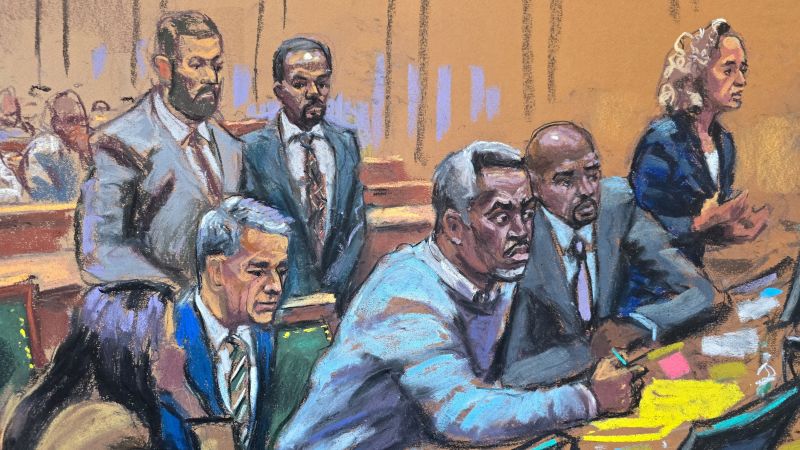In a compelling courtroom narrative, defense attorney Marc Agnifilo articulated the case surrounding Sean “Diddy” Combs, particularly focusing on the domestic violence allegations levelled against him by his ex-girlfriend, Cassie Ventura, and another named witness, referred to as “Jane.” Throughout the trial, Agnifilo maintained a direct and steadfast approach to addressing the issues of domestic violence within Combs’ previous relationship with Ventura. His demeanor, marked by a refusal to shy away from uncomfortable topics, underscored a strategic defense that welcomed the examination of the facts rather than contesting the testimonies provided by the accusers.
In his assertions, Agnifilo pointed out that during the proceedings, they did not challenge Ventura’s claims about the violence she purportedly endured—being hit, kicked, or dragged. He emphasized the matter at hand, declaring that “the issue is domestic violence,” which evidently framed his entire defense strategy. By referencing Ventura’s explicit social media declarations after the release of a 2024 surveillance video, which allegedly depicted Combs assaulting her while at the InterContinental Hotel in California, Agnifilo sought to create a narrative where Ventura’s clear articulation of her experience was paramount to understanding the context of the allegations.
“Believe her,” Agnifilo urged the jury, stressing that Ventura’s statements about domestic violence should be taken seriously. He conveyed that, between Combs and Ventura, there had been a legal confrontation, culminating in a lawsuit filed by Ventura in November 2023 that sought $30 million but was reportedly settled the next day for $20 million. This settlement, Agnifilo observed, placed Ventura in a position of strength, ultimately declaring her the “winner” of their contentious relationship, particularly as Combs awaited trial behind bars.
Agnifilo was keen on portraying the nature of Combs and Ventura’s relationship as genuine and devoid of conspiracy, insisting that they were genuinely in love. He expressed admiration for Ventura, contending that she and Combs were well-matched in their intensity and passion. Describing their dynamic as “a great modern love story,” Agnifilo invited the jury into the intimate correspondence between the two, suggesting that their exchanges, filled with affection, showcased a deeper connection.
As he elaborated on the nature of Ventura’s departure from the relationship, he framed it as a conscious adult decision she made in 2018 with no resistance from Combs. This assertion was crucial; it highlighted Ventura’s autonomy and the dynamics of consent within their romantic entanglement. “She was always free to leave,” Agnifilo confidently argued, reinforcing the idea that Ventura’s decision to remain involved in a love-laden relationship, despite its complexities, was personal.
Agnifilo went beyond the emotional landscape, addressing aspects of the couple’s sexual relationship. He stated plainly that Ventura was unapologetically sexual, noting that their physical intimacy was a facet of their bond. His remark that “they were their best selves when it came to sex” painted a picture of a passionate couple who faced challenges primarily due to issues stemming from infidelity and jealousy.
As evidence, Agnifilo referenced numerous text messages admitted during the trial, emphasizing a lack of discontent regarding sexual chemistry. He stated, “you won’t find one” message where Ventura expressed dissatisfaction with their sexual life, thereby attempting to establish a narrative of mutual passion rather than discontent. This framing led him to suggest that both parties “match up” well in their intimate lives and even hinted at unconventional aspects of their relationship, likening their dynamic to that of “swingers.”
Ultimately, Agnifilo’s strategy leaned towards portraying Sean Combs as a complex individual entangled in an authentic relationship rather than a villainous counterpart in a tale of violence. His attempts to navigate the emotional truths of Ventura’s experience with careful attention reflect the broader complexities that often accompany domestic violence cases, raising questions about power, consent, and the intricate realities that accompany personal relationships.











